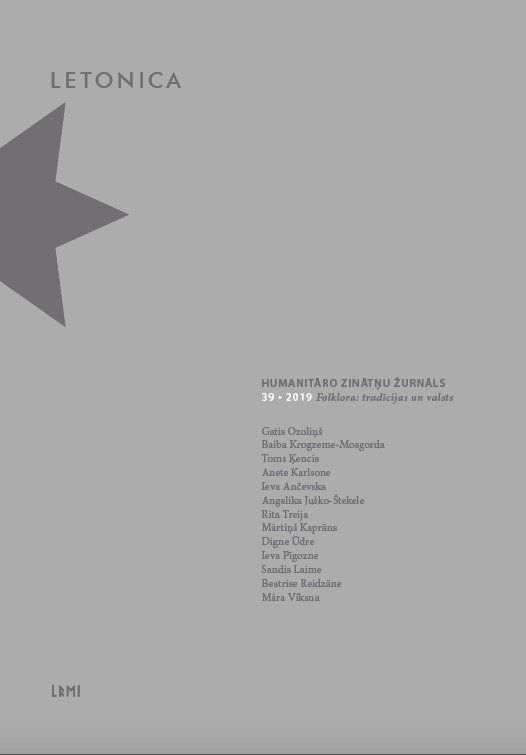Pirmā pasaules kara folklora 1964. un 1965. gada LPSR folkloristu zinātnisko ekspedīciju kolekcijās
The World War I Folklore in the Collections of the Scientific Expeditions of Folklorists of the Latvian SSR in 1964 and 1965
Author(s): Gatis OzoliņšSubject(s): Customs / Folklore, Human Geography, Oral history, Politics and society, Post-War period (1950 - 1989), Politics of History/Memory, Politics and Identity
Published by: Latvijas Universitātes Literatūras, folkloras un mākslas institūts
Keywords: the World War I folklore; a story of a personal experience; folklore expeditions; memories; identity;
Summary/Abstract: The concept “World War I folklore” incorporates the folklore used, spread and produced by the World War I participants – soldiers and persons directly involved in military actions, prisoners of war, the wounded, civil population, press, etc. A significant text corpus consists of the personal experience stories memorised by war participants and eyewitnesses, and recorded after the end of the war. Within the frame of this paper, special attention will be drawn to personal experience texts, treating them as research sources of World War I events, life-story fragments, which provide a different kind of knowledge about war, people, places and events. Within the genre of war tales, a subcategory under the title of “Vaņģības stāsti” [Stories of Prisoners of War] has been singled out, since these stories reflect the experience of those Latvian soldiers in the army of Russian Empire, who were taken prisoners in 1914 and 1915. These stories have a special emotional and historical value, since there are quite a few testimonies about the experience of Latvian soldiers at the beginning of WWI and about how they were taken prisoners of war. The paper includes several folklore units (e.g. about the defenders of Osoveca fortress and stories about “The Attack of the Dead”, as well as Bermondt, Lenin, etc.).
Journal: Letonica
- Issue Year: 2019
- Issue No: 39
- Page Range: 9-20
- Page Count: 12
- Language: Latvian

